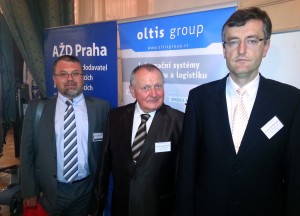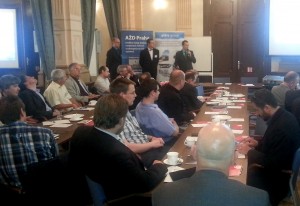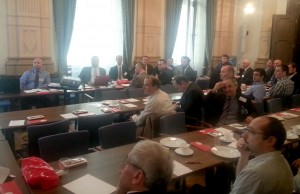Colloquium ŽelAktuel

On 14 May 2015 there was held the 21st colloquium ŽelAktuel in the Knight’s Hall of RIA. The co-organiser was the Transport Faculty of University of Pardubice. This time the topic was “Increasing of railway capacity by intelligent transport systems”. Leading experts from companies such as RIA, SIEMENS, AŽD Praha and OLTIS Group, representatives of transporters (ČD), the Ministry of Transport and Czech transport universities (the Transport Faculty of University of Pardubice and the Faculty of Transportation Sciences of Czech Technical University in Prague) were discussing the difficulties associated with sufficient railway capacity for the demanding conditions of railway operation, which originate from the liberalization of the transport market, intensive sequential passenger transport and also with the growing long-distance transport in open access mode. Specifically, they discussed modern technological solutions such as European security system ETCS, traffic operation from central dispatching centres CDP, automatic route settings ASJC, automatic train operation AVV etc.
It was the second time OLTIS Group was a partner of the colloquium. David Krásenský, consultant for research, development, innovation and international cooperation, gave a presentation on the topic “Visions of modern traffic operation within the project 7RP Capacity4Rail (C4R)“. In addition to the C4R project, so far the most extensive project of European research and development with the participation of OLTIS Group, he introduced the previous related project OnTime, the objective of which was to develop methods and processes to maximize the capacity utilization and reduce the overall delays at European railways. The results of this project clearly show that it is not always necessary to invest large expenses into railway capacity increase or its effective utilization (connected e.g. with the construction of new line tracks, security devices and other construction measures), but that it is often possible to achieve significant effects via significantly less expensive “soft” means, such as simulation models, advanced algorithms for decision making support or innovative processes for railway traffic operation. A lively discussion among the participants during the colloquium was a testimony of high topicality and expertise of the contributions and their authors.


